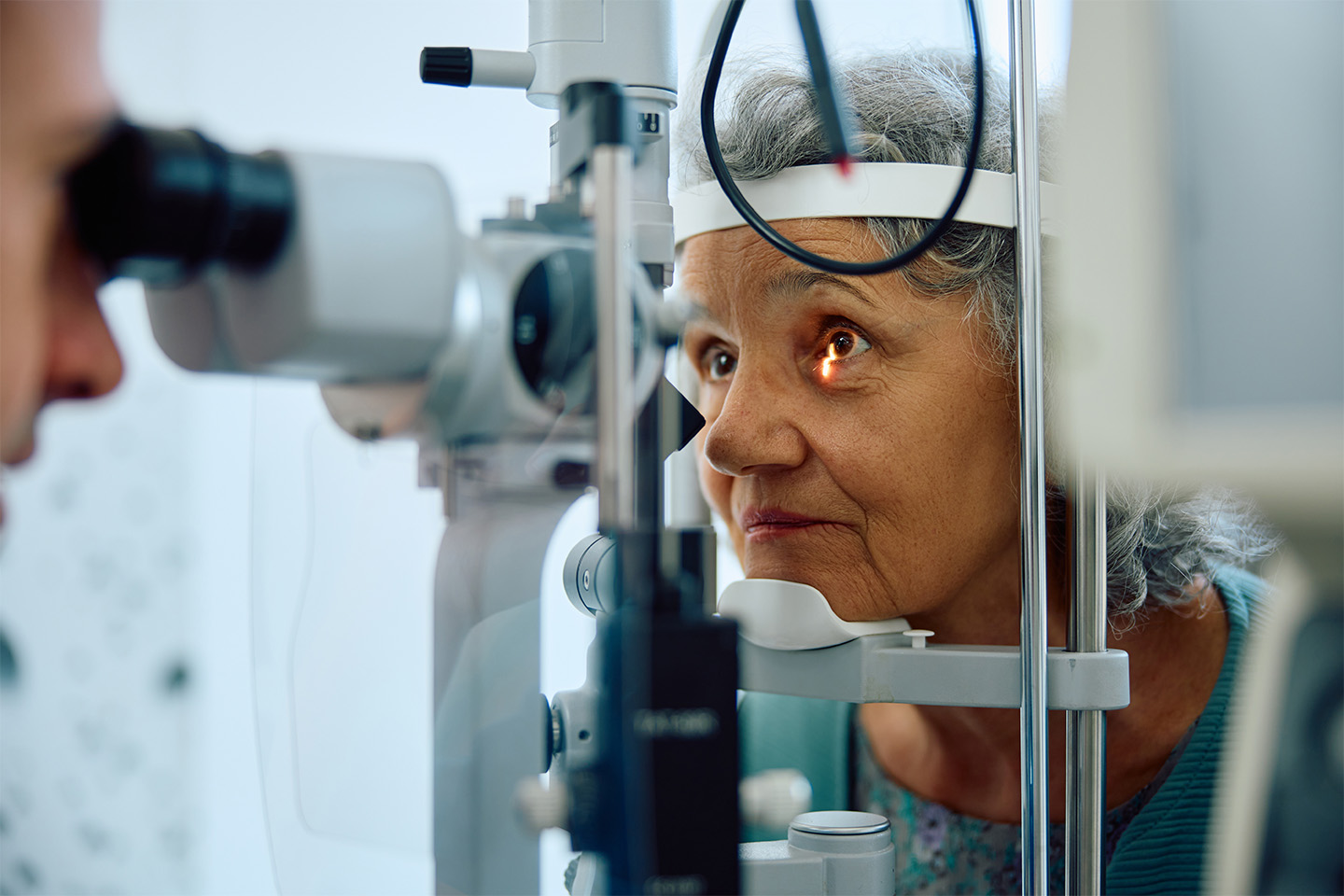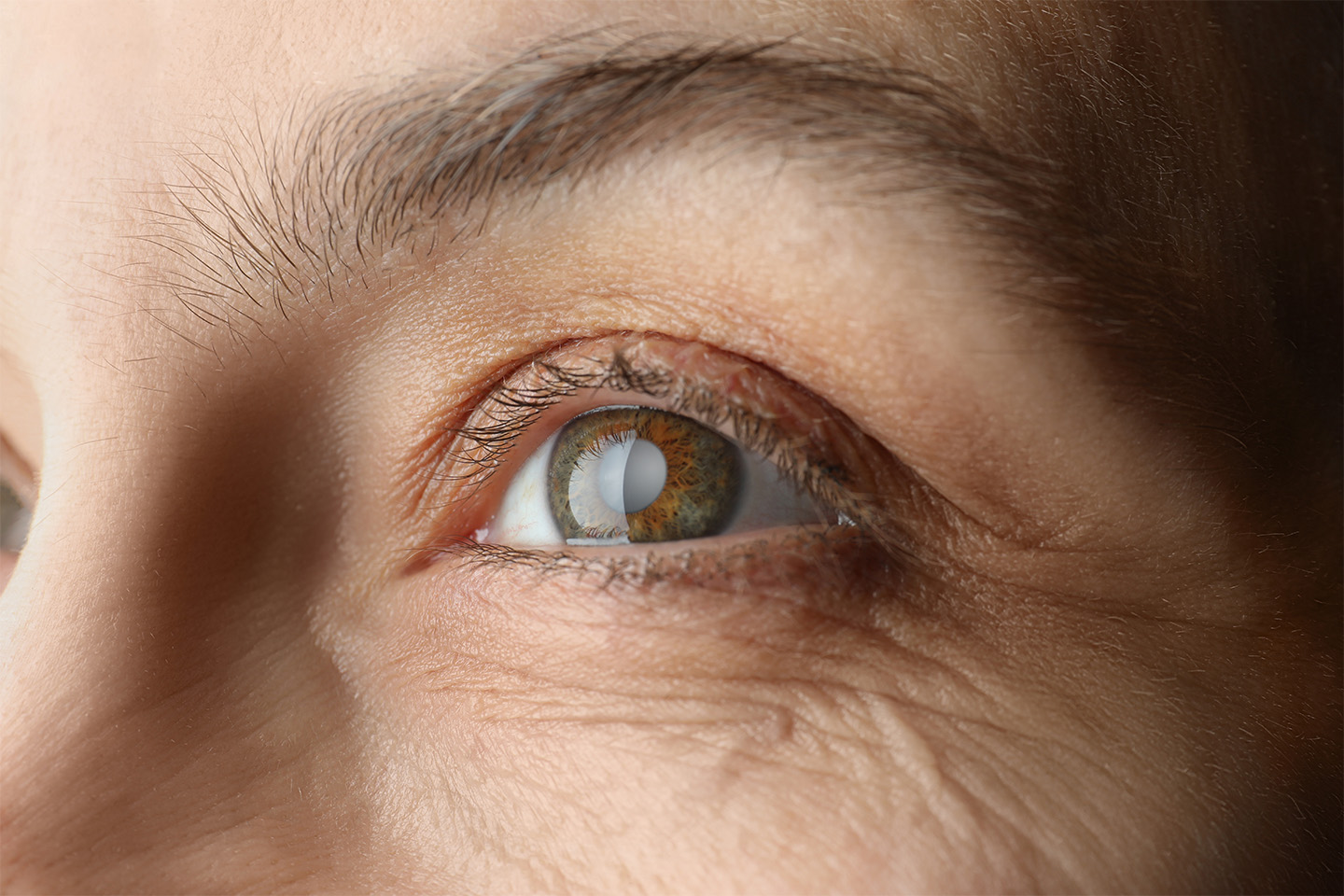How Long Should You Wait Between Cataract Surgery on Each Eye?

Cataract surgery is one of the most common and highly effective outpatient procedures that can significantly improve vision and quality of life for individuals with cataracts. But individuals with cataracts in both eyes may be curious about the optimal timing between surgeries and wonder whether a second eye surgery would be better than same-day treatment for both eyes. Here’s what you should know about bilateral cataract surgery and how the timing of operations may impact cataract surgery recovery.
Understanding Cataract Development
Each eye has a natural lens positioned behind the iris, which is the colored portion of the eye. The lens, comprised of proteins and water, focuses light to create a clear image on the retina. Around the age of 40, the proteins break down and form a cloudy area on your lens — the cataract. Like many eye conditions, cataracts typically develop slowly and may not show noticeable symptoms for decades. Regular eye exams play a vital role in preserving clear vision and preventing the progression of cataracts. Without treatment, cataracts can eventually lead to vision loss. However, cataract surgery can reverse this condition and restore your vision.
What Happens During Cataract Surgery
During cataract surgery, the surgeon replaces the clouded lens with an artificial intraocular lens (IOL) made of silicone, acrylic, or plastic. The procedure uses local anesthesia and often takes no longer than 20 minutes. Most surgeries use the phacoemulsification technique, during which the eye surgeon creates a microscopic incision using a blade (traditional cataract surgery) or laser (laser-assisted cataract surgery) to remove the cataract. This procedure eliminates the need for sutures or patches after the surgery.
When cataracts are present in both eyes, surgery is typically performed one eye at a time in separate operative settings to allow for healing. Performing these procedures with a specific interval of time between each is known as delayed sequential bilateral cataract surgery (DSBCS).
The Benefits of DSBCS
DSBCS is the standard practice for bilateral cataract removal in the United States. Immediate sequential bilateral cataract surgery (ISBCS), which is surgery performed on each eye in the same operative setting, may be recommended in some rare circumstances. However, further research is needed to determine its safety and refractive outcomes.
DSBCS is typically scheduled one to three weeks apart and offers benefits that can support improved outcomes while mitigating the risk of complications:
- Time to assess side effects, refractive correction, and IOL type. The surgeon can adjust the refractive target or recommend a different IOL to optimize the vision outcome of the second eye after considering the patient’s experience, side effects, and feedback from the first surgery.
- Adjustment period for healing and vision improvement. Adapting to a new IOL takes time, and having a few weeks between surgeries allows the eye to heal and your brain to adjust to the visual changes more comfortably.
- Reduced disruption to daily life. Having one eye that is fully functional while the other is healing can minimize disruptions to daily activities and allow for increased independence.
Trust Our Leading Cataract Experts
The exact duration of time between surgeries can vary based on different factors. The surgical technique and the patient’s overall health (including age, preexisting health conditions, and the ability to heal and follow postoperative care instructions) significantly influence the time interval between surgeries.
At Kleiman Evangelista Eye Centers of Texas, we prioritize your safety and the quality outcome you deserve. We provide a seamless experience by planning both eye surgeries simultaneously and scheduling them two weeks apart. We remain by your side throughout your cataract surgery journey and will adjust your treatment based on your unique needs. Contact our team of expert doctors today and get started on your path to clear vision.
[DISPLAY_ULTIMATE_SOCIAL_ICONS]








